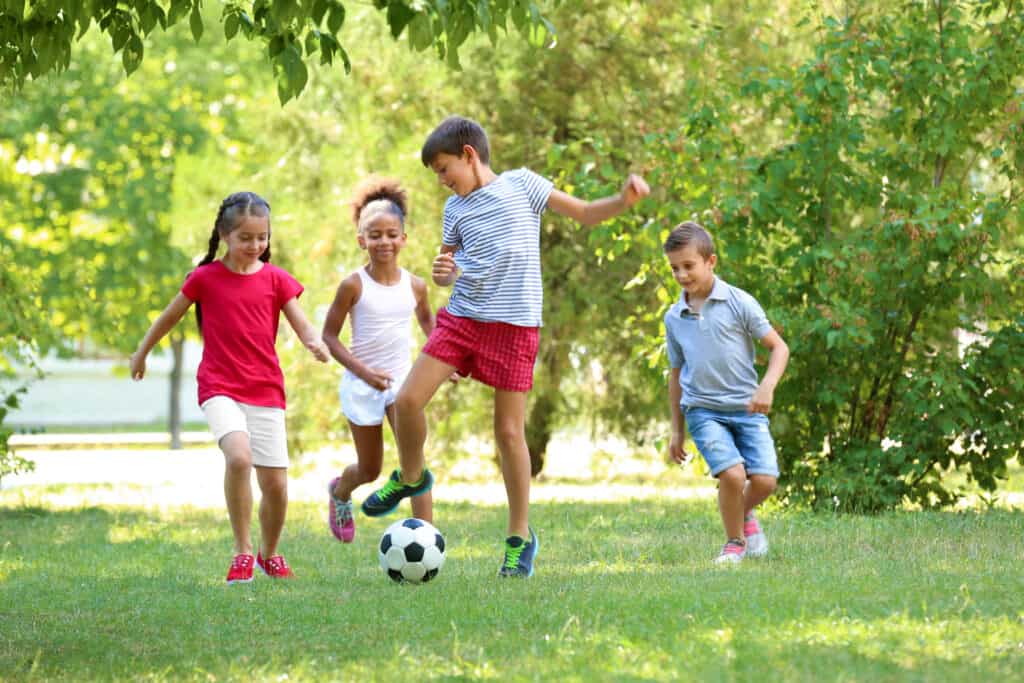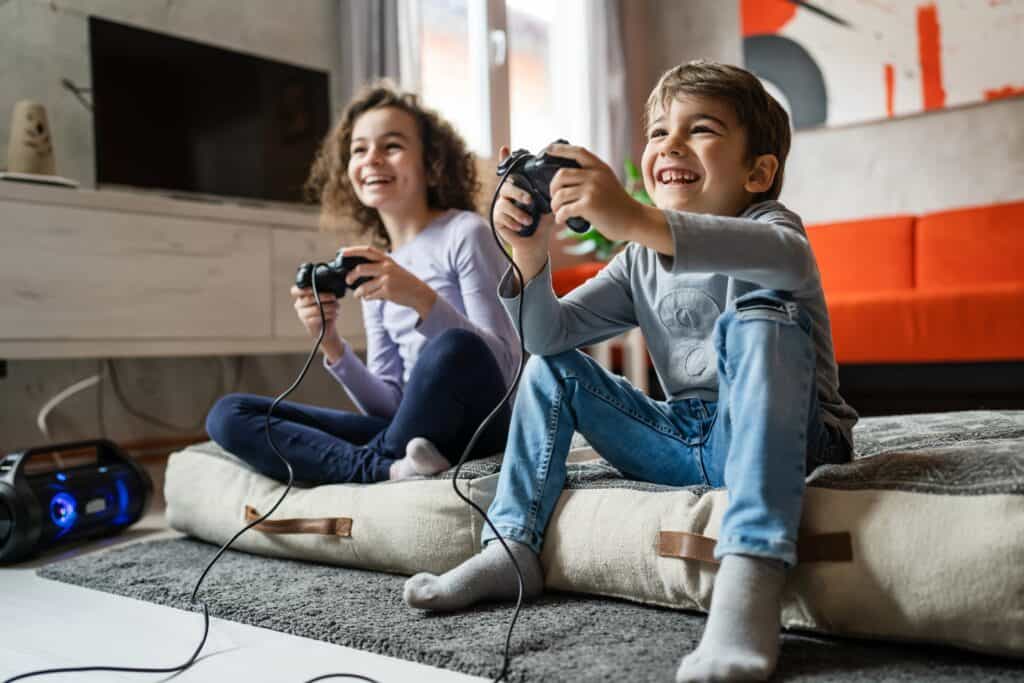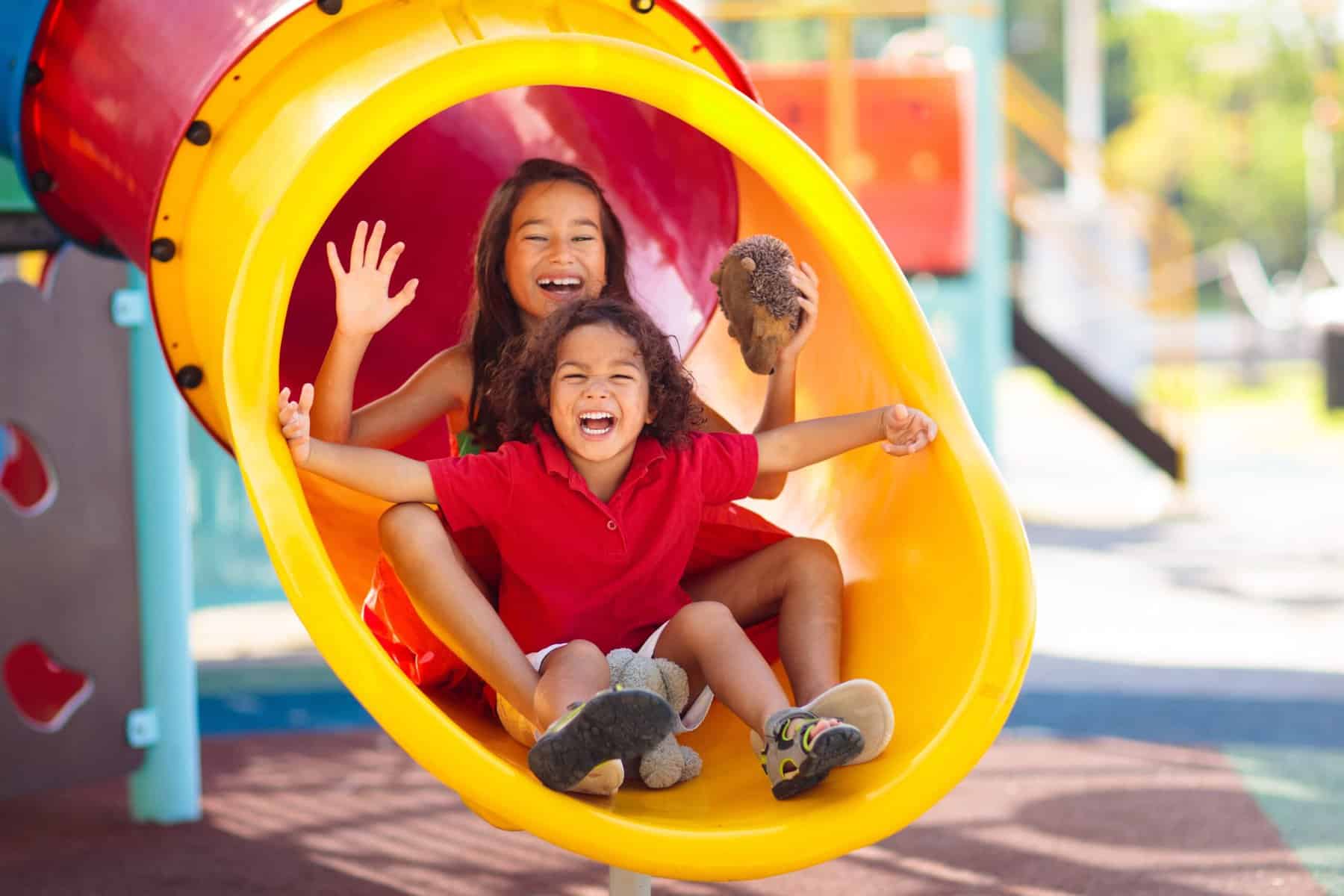Homeschool Socialization
Whether your child makes friends in a classroom, on the soccer field, or during chess club, socialization is an important part of childhood development. It’s how children learn to get along with others and become successful members of society.
Homeschooled kids can benefit greatly from setting aside time for activities where they can make and maintain new friendships. In this article, we’ll talk more about why socialization is important and how you can incorporate it into your family’s routine.
Why is Socialization Important in Homeschooling?
Socialization is the process of learning social skills to successfully interact with others in society. It’s important for children to develop skills to read cues, practice their manners, and learn what is socially acceptable.
It’s also how children learn about other people, religions, and cultures and how to accept others’ differences. Social skills are imperative in the modern world and are a critical part of helping your child become independent.
Other benefits of socialization include:
- Building confidence
- Feeling connected with others their age
- Improving cognitive skills and mental health

How to Socialize Homeschoolers
When homeschooling, it’s the parent’s responsibility to make sure their child is getting ample social opportunities. Try to expose your child to non-homeschooled children to broaden their perspective. Here are some ways you can promote in-person socialization when homeschooling:
1. Join a homeschool group
Homeschool co-ops consist of a large group, or several groups, of homeschoolers who learn and play together. Co-ops often organize fun activities and field trips, and parents may take turns teaching the whole class. Co-ops are a great way for your student to meet other homeschoolers and for you to meet other like-minded homeschool families. Keep in mind, some co-ops may charge a registration fee, in addition to regular dues.
2. Keep in touch with your student’s public school friends
If you’re switching your student from public school, they may be upset about leaving their friends behind. Keeping in touch with your child’s public school friends can be a good way for them to continue socializing without feeling lonely. Encourage them to talk to them often, or help them make plans to spend time together.
3. Join sports, clubs, or other extracurricular activities
Finding a new group hobby is a great way for your student to connect with new friends! There are plenty of social activities for homeschoolers available! Try having your student join after-school activities such as sports, music lessons, or Scouts. A new activity can also be a fun way to get out of the house and try something new. Many public schools offer their extracurriculars to homeschooled students as well, so be sure to check with your district to see what they have available.
4. Take field trips to parks, the pool, or the library
You and your student can benefit from taking a break with a field trip every now and then! Field trips can be a good way to get your homeschooler out in the world, and they don’t have to break the bank. You can make a habit of visiting the nearby playground, public pool, library, or nature preserve for an hour each day. Anywhere that your student can interact with others can help them build valuable social skills.
5. Make time for your student’s new friends
There are plenty of ways your child can socialize in person, and regularly seeing friends can help prevent loneliness or isolation.
When your student is making friends, encourage good friendships! Make time for playdates, or coordinate them with other parents. Having regular playdates or attending a youth group or summer camp together can encourage your child to build healthy, long-lasting friendships.

Homeschooling Socialization with Miacademy
Socialization is an integral part of childhood development and helps children build valuable lifelong social skills. Socializing while homeschooling is absolutely possible; it just takes a little effort! Getting out and meeting new people is healthy for everyone, and Miacademy can help your child keep in touch with our innovative online community!
In addition to our accredited homeschool curriculum, our moderated community is one of our many site features that set us apart. With the community features, students can interact with others and learn about digital etiquette in a safe and controlled environment. Your student’s safety is our top priority. Our online community is 100% secure and actively moderated to ensure appropriate student interactions.
With your permission, your student can:
- Join online groups of shared interests and compete on teams for Gold
- Create their own status updates and comment on others’ statuses
- Start their own online shop where they can sell clothes and furniture they’ve designed
- Buy and care for virtual pets
- Challenge other students to educational games, such as the Dragon Race
- Contribute stories and share what they’ve learned in the weekly newspaper
- Comment on other students’ short videos and create and upload their own
In our increasingly digital world, it’s important for students to learn virtual etiquette in a safe and supportive way. Miacademy’s community is a perfect place for students to interact with peers their own age in a monitored environment.
To ensure our site remains secure, our highly trained moderators screen every comment, video, and design. All student-generated content must be approved by a moderator before it can become visible to other users. In addition to our diligent moderation team, our site is also COPPA compliant, which means that your child’s activity will never be recorded or tracked for any purpose.
If you don’t want your child to use this feature, you can turn it off in your Parent Portal and continue using Miacademy for educational purposes only.
If you have any additional questions about Miacademy’s community feature, feel free to reach out to our friendly customer service team! They will be happy to help you with any questions you may have.
FAQ
Does homeschooling affect socialization?
Yes, just like public schools have an effect on socialization, homeschooling does as well. Homeschool students often spend more time with people of different ages than public schooled children, which can contribute to increased social abilities. Simply talking to and meeting new people are great ways for children to develop social skills, regardless of where they are receiving their education.
How do homeschooled children socialize?
Homeschoolers socialize the same way any child does: by talking to people! Whether they meet a playmate at the park, go to visit Grandma, talk to the cashier at the grocery store, or chat with their soccer teammates, simply spending time with other humans helps children develop social skills. Students can meet new people through joining homeschool pods or co-ops, playing team sports, or visiting public places, such as the park, pool, or local library.
What do psychologists say about homeschooling?
It’s difficult to say, because it depends on whose research you read. At the time of writing, there are mixed findings about the social skills of homeschoolers, due to biased or restricted sample sizes and research design that leaves room for too many other variables. Homeschooling families are so diverse that it can be extremely difficult to treat them as a single group in research.
So far, the research most conclusively has found that a child’s social skills are tied to factors like their community and support network, rather than their learning environment. To read more about the psychologist’s take on homeschool socialization, you can check out this article from Psychology Today.
